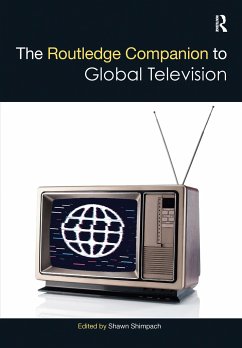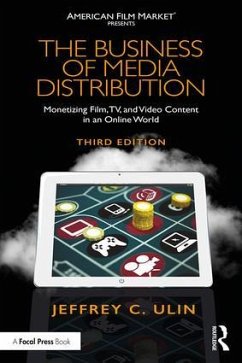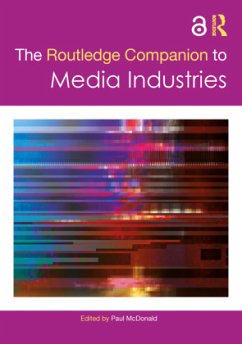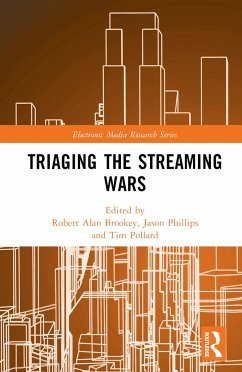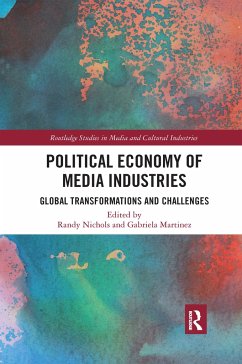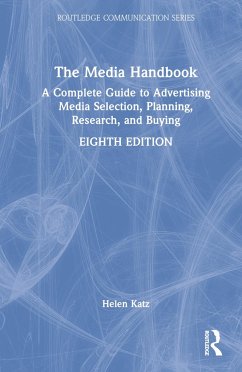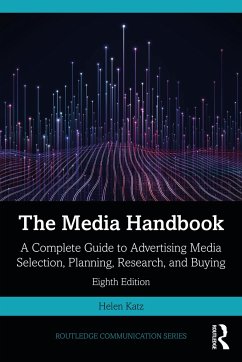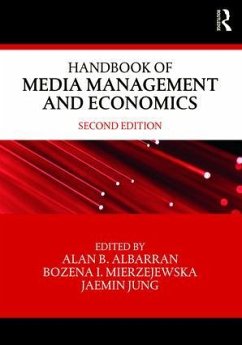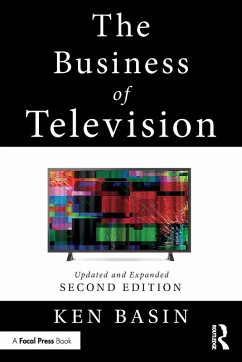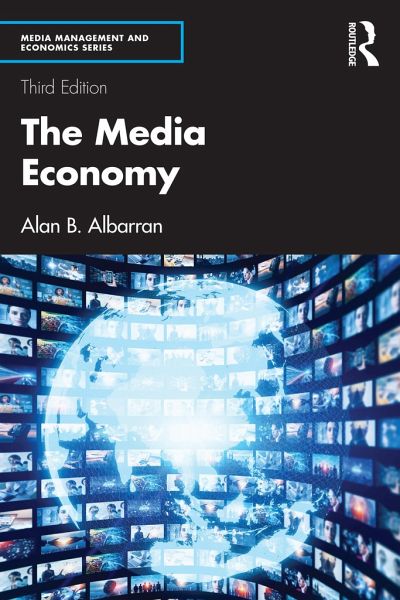
The Media Economy
Versandkostenfrei!
Versandfertig in 6-10 Tagen
79,99 €
inkl. MwSt.
Weitere Ausgaben:

PAYBACK Punkte
40 °P sammeln!
This fully updated third edition analyzes the media industries and their activities from macro to micro levels, using concepts and theories to demonstrate the role the media plays in the economy as a whole.This textbook breaks new ground through its analysis of the rapidly changing and evolving media economy from two unique perspectives. First, the book explores how media industries function across global, national, household, and individual levels of society. Second, it assesses how key forces such as technology, globalization, regulation, and consumer aspects are constantly evolving and infl...
This fully updated third edition analyzes the media industries and their activities from macro to micro levels, using concepts and theories to demonstrate the role the media plays in the economy as a whole.
This textbook breaks new ground through its analysis of the rapidly changing and evolving media economy from two unique perspectives. First, the book explores how media industries function across global, national, household, and individual levels of society. Second, it assesses how key forces such as technology, globalization, regulation, and consumer aspects are constantly evolving and influencing media industries. This new edition incorporates thoroughly updated theory and research as well as expanded case studies that include examples from international markets such as Asia, Europe, and Latin America. It builds on the contributions of the previous edition by providing new references and current data to define and analyze today's media markets and offers a more expansive assessment of streaming business models as well as the effects of Covid-19 on the media economy.
Written in an accessible style and presenting a holistic global perspective of the role of media in the global economy, the textbook provides crucial insights for students and practitioners of media economics, media management and media industries.
This textbook breaks new ground through its analysis of the rapidly changing and evolving media economy from two unique perspectives. First, the book explores how media industries function across global, national, household, and individual levels of society. Second, it assesses how key forces such as technology, globalization, regulation, and consumer aspects are constantly evolving and influencing media industries. This new edition incorporates thoroughly updated theory and research as well as expanded case studies that include examples from international markets such as Asia, Europe, and Latin America. It builds on the contributions of the previous edition by providing new references and current data to define and analyze today's media markets and offers a more expansive assessment of streaming business models as well as the effects of Covid-19 on the media economy.
Written in an accessible style and presenting a holistic global perspective of the role of media in the global economy, the textbook provides crucial insights for students and practitioners of media economics, media management and media industries.





